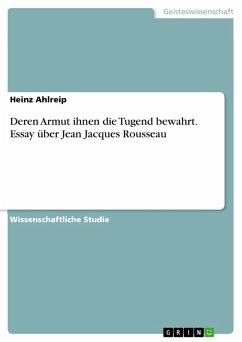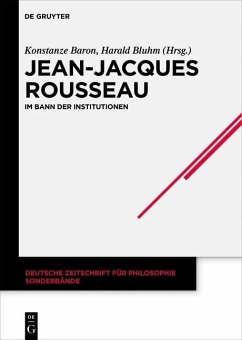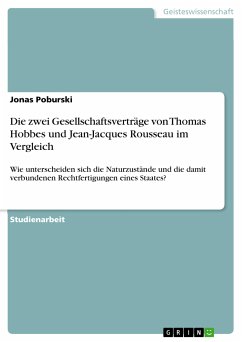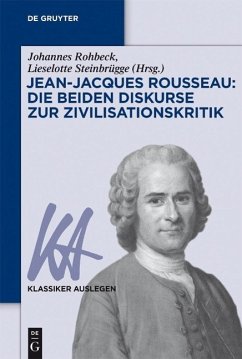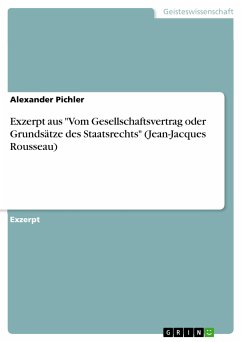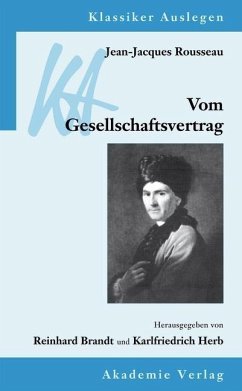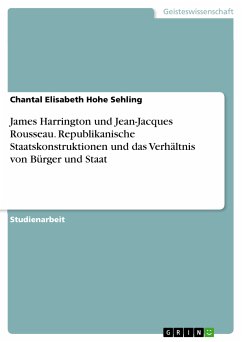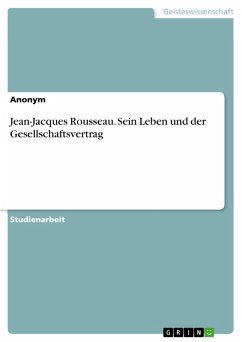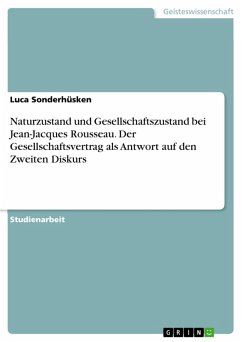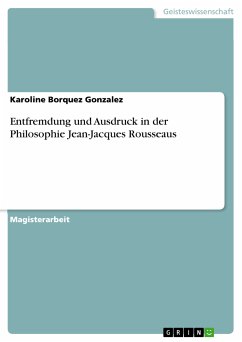
Jean-Jacques Rousseau (eBook, PDF)
A Friend of Virtue

PAYBACK Punkte
61 °P sammeln!
Scholars have long debated the contribution Rousseau has made to political thought. Is he a theorist of radical individualism, a reactionary advocate for authoritarianism, or just a brilliantly paradoxical but ultimately incoherent controversialist? In the first book devoted to discussion of Rousseau's conception of virtue, Joseph R. Reisert argues that Rousseau's work offers a coherent political theory that both complements and challenges key elements of contemporary liberalism.Drawing on his deep familiarity with Rousseau's work, Reisert maintains that Rousseau's primary concern was to disco...
Scholars have long debated the contribution Rousseau has made to political thought. Is he a theorist of radical individualism, a reactionary advocate for authoritarianism, or just a brilliantly paradoxical but ultimately incoherent controversialist? In the first book devoted to discussion of Rousseau's conception of virtue, Joseph R. Reisert argues that Rousseau's work offers a coherent political theory that both complements and challenges key elements of contemporary liberalism.Drawing on his deep familiarity with Rousseau's work, Reisert maintains that Rousseau's primary concern was to discover the psychological foundations of virtue, which he understood as the strength of will needed to respect the rights of others. Reisert reconstructs the model of the human soul that underpins Rousseau's account of virtue, a model he considers superior to the alternatives conceived by Aristotle, Hobbes, Locke, Montesquieu, Kant, and Rawls. Rousseau, the author explains, believed that life in modern societies undermines virtue, but that for individuals to thrive, and for free societies to endure, all would require moral education. Rousseau, who styled himself "a friend of virtue," sought to impart virtue to his readers through the examples of his literary characters Emile and Julie.Reisert finds that Rousseau's thought poses a dilemma for modern politics: democratic governments can do little to cultivate virtue directly, yet liberal society continues to need it. The requisite moral teaching, Reisert concludes, should be provided instead by families, religious organizations, and other civil associations.
Dieser Download kann aus rechtlichen Gründen nur mit Rechnungsadresse in A, D ausgeliefert werden.




